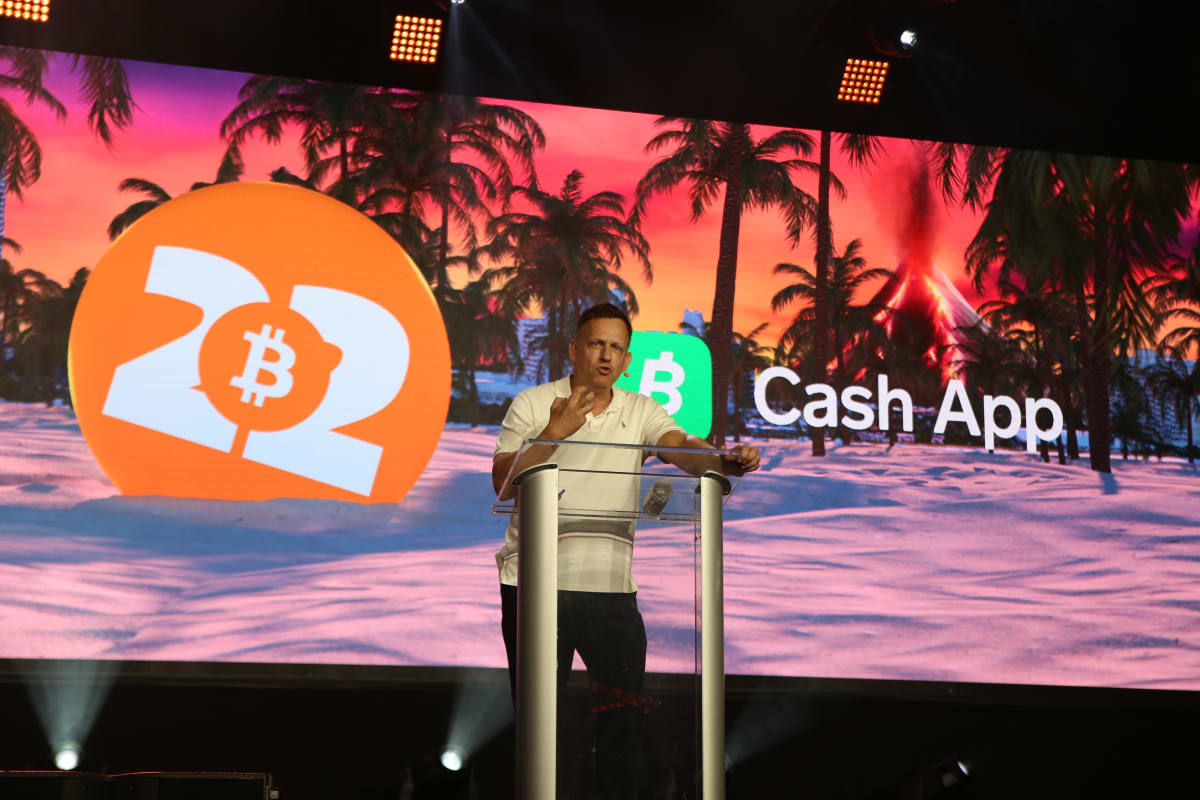The Lightning Conference Preview in Six Stories
Between October 19 and October 20, 2019, The Lightning Conference will turn the city of Berlin, Germany, into the bona fide world capital of the Lightning Network. The event is an opportunity for developers, investors and enthusiastic community members to get together and exchange their experiences with Bitcoin’s second layer payment network. For the first time since its early-2018 Bitcoin mainnet launch, representatives and fans of all four major Lightning implementations (Lightning Labs’ lnd, Blockstream’s c-lightning, ACINQ’s eclair and Nayuta’s Ptarmigan) will get together and discuss their ideas and innovations in a friendly and collaborative way.
The event is a spiritual successor to the Berlin #LightningHackday series and takes place just over a year after the September 2018 event. But unlike the “barcamp” format of the previous developer-centric events, The Lightning Conference broadens its reach to also appeal to businesses and the larger community. This approach is also reflected in the choice of speakers, among whom one can also find podcasters, open-source entrepreneurs and representatives of businesses that use Lightning as a means of payment.
In order to find out more about the significance of this first-of-its-kind event, Bitcoin Magazine spoke with a Lightning executive (Lightning Labs CEO Elizabeth Stark), a researcher (PISA Research CEO Patrick McCorry), an entrepreneur (Wasabi Wallet, World Crypto Net, Nodl and Coldcard Wallet investor Max Hillebrand), a marketer (Bottle Pay Co-Founder and Operations Manager Peter O’Donoghue) and two developers (Satoshi’s Games Co-Founder Carlos Roldan and Bolt-A-Thon Co-Organizer Andrew Yang).
These six speakers and participants have been asked two fundamental questions:
1. What is the significance of this first-of-its-kind Lightning-centric event?
2. What will you be presenting (if applicable) and which panels get you most excited?
Their answers varied according to their backgrounds and interests, and ultimately revealed the spirit of this first edition of The Lightning Conference.
Elizabeth Stark on the Importance of Togetherness
As CEO of Lightning Labs, Elizabeth Stark has been in the spotlight of the Bitcoin scaling debate for more than three years. Prior to becoming a larger-than-life personality in the Bitcoin space, Stark taught at Stanford University and Yale University and advised young entrepreneurs.
Stark emphasized the importance of meeting people in person and exchanging ideas.
“We’d seen this community emerge online over the past few years, and we decided it was finally time to get everyone together in one place,” she said. In the case of this conference, this “one place” is Berlin: “Berlin was a great choice, as there had already been lots of Lightning Hack Days there, and there’s a strong local community.”
I really believe in the power of getting people together in one place, and the magic that can come along with it.
— Elizabeth Stark
Lightning Network clients are being developed on three continents (Australia, Europe and North America) and there are plenty of enthusiasts all over the world who would like to meet their online contacts. For Stark, this in-person contact is key.
“I really believe in the power of getting people together in one place, and the magic that can come along with it,” she said. “There are a lot of folks I can’t wait to meet (many for the first time in person), and there are plenty of topics we’re excited to discuss with the dev community.”
She is particularly looking forward to the social, human rights and business-focused discussions that are part of the conference programming.
“I’m excited to hear a bunch of the talks we’ve accepted,” Stark explained. “There’s one on the human rights implications of Lightning, we have perspectives from folks in Venezuela … people speaking about privacy and lots of people talking about developing on and deploying Lightning for their business.”
Patrick McCorry on Lightning Research and Development
Patrick McCorry was the first person in the U.K. to successfully defend a PhD thesis on the topic of cryptocurrencies, and his research in Bitcoin and cryptography has appeared in many academic venues and conferences (including Scaling Bitcoin 2017 and 2019, as well as Breaking Bitcoin 2017). Before becoming the CEO of PISA Research, he taught as an assistant professor at King’s College London and conducted research at University College London, University of Illinois and Newcastle University.
In accordance with his background, McCorry defined the significance of The Lightning Conference in relation to researchers, developers and investors.
“Off-chain protocols are woefully under-researched, under-developed, under-funded, yet remain the only realistic scalability solution that will let millions of people access cryptocurrencies,” he said. “So, dedicated events like The Lightning Conference are crucial for bringing off-chain scalability to the forefront of minds for researchers, developers and even investors.”
The software is in a condition now where developers can play with it and innovate. So it will be great to see the demos emerge.
— Patrick McCorry
McCorry said he’s looking for interesting innovations and proof-of-concept releases which are emerging at this point in development.
“I’m really excited to see the progress in terms of applications being built on top of Lightning,” he said. “The software is in a condition now where developers can play with it and innovate. So it will be great to see the demos emerge.”
McCorry also has plans to reveal PISA Research’s goals during the event: “At PISA Research, we are tasked with building financially accountable watchers for the Lightning Network. For us, it is really important to highlight the quirks and difficulties of building watchers for Bitcoin (the channel protocol really does need to be changed at some point via a soft fork), and to also demystify what a watching network can and can’t do,” he said.
Max Hillebrand on Entrepreneurship and Privacy
In a June 2019 podcast, Max Hillebrand revealed that he started reading Keynes at the age of nine and then got into Bitcoin at 16. He has since taken his advocacy so far that he even convinced his grandmother to run a Lightning node, encouraged local farmers to accept BTC in exchange for vegetables and recently started a fiat-free life.
In tandem with his love for liberty and privacy, Hillebrand is also an open-source entrepreneur whose investment portfolio will leave every Bitcoin enthusiast in awe: Some of the projects he backs and supports include BTCPay Server, Nodl and Wasabi Wallet.
Like Stark, Hillebrand reiterated the importance of networking and community building.
“I seek to mingle with all the peers who are thinking, breathing and doing Bitcoin,” he said. “I get to ask some of the many questions I have, and from the conversations with these wizards I learn so much. This is also the place to talk problem, strategy and solution with other entrepreneurs who are providing valid services, and what can be done to further improve. At these brainstorming sessions the brightest business ideas develop, together with the right peers willing to manifest it.”
Assuming that we get Taproot and Sighash no input activated in the protocol, I claim that we have “perfect” privacy in Bitcoin, and I seek to defend that claim.
— Max Hillebrand
Because of his personal interest and projected takeaways from the event, Hillebrand gravitates toward sessions at the conference that will focus on privacy-centered technologies in Lightning.
“Specifically for my attendance at LN Conf, I seek to gain more understanding of the nuances of how privacy can be better defended in Lightning,” he said. “I’m also interested in tips for developing a new protocol implementation, one that prioritizes privacy first and foremost. This is especially useful because these are some of the future goals of Wasabi, so lots to learn and do.”
As a presenter, Hillebrand will talk about privacy and the technical means that can maximize it on both Bitcoin’s base layer and Lightning.
“The talk will explain some nuances about atomic swaps and CoinJoins to open channel factories, zero knowledge proofs to exit a factory, rendezvous trampoline atomic multipath routing and whatever other crazy magic happens in the rabbit hole in the meantime,” he explained. “Assuming that we get Taproot and Sighash no input activated in the protocol, I claim that we have ‘perfect’ privacy in Bitcoin, and I seek to defend that claim.”
Peter O’Donoghue on Collaboration and Meeting Developers
Bottle Pay is one of the most successful Lightning-powered tipping services on social media, and the company’s co-founder and operations manager Peter O’Donoghue is very much aware of the need for collaboration. Bottle, which is presented as a project whose mission is to make Bitcoin accessible to everyone, stands out as a jack-of-all-trades which allows integrations with all of the popular social media platforms (including Instagram, Telegram, Reddit, GitHub, Twitch, YouTube, Mixcloud and Twitter). The dedicated plug-ins for Firefox, Chrome and Brave also extend the ease of use, so that anyone who has no prior knowledge or understanding of Bitcoin or Lightning can participate in the circular economy.
“When we reflect on the fact that the first Lightning implementation developed by Lightning Labs launched in beta just 18 months ago, to see the first ever conference dedicated entirely to Lightning happening like this is really exciting,” O’Donoghue told Bitcoin Magazine.
It’s important to remember how crucial collaboration is for such a nascent technology.
— Peter O’Donoghue
The Bottle Pay co-founder emphasized the need for collaboration in the Lightning space, especially among developers.
“It’s important to remember how crucial collaboration is for such a nascent technology,” he said. “Because we are all learning and using the tech in different ways, this conference will be a great opportunity to share knowledge, compare notes and see how we can move things forward together.”
O’Donoghue is particularly looking forward to catching up with fellow bitcoiners who attended the Baltic Honeybadger conference in Riga, including Jameson Lopp and Max Keidun from HodlHodl.
“I’m also very interested in the work of the Human Rights Foundation, so I can’t wait to see the presentation of Eric Wall, whose writing on Medium I enjoy,” he concluded. “Jack Mallers is fresh from unveiling Olympus, which should make for a great presentation.”
Andrew Yang and Carlos Roldan on Lightning Integrations and Games
Andrew Yang, the director of marketing at Alto Financial successful organizer of the Bolt-A-Thon online conference earlier in 2019, regards the event as a demonstration of community and technology growth.
“It shows that the Lightning ecosystem is large enough in order to have its own conference,” he said. “Plus, it’s a great way for Lightning pioneers to share, collaborate, encourage and get inspired by one another. Hopefully it’ll be the first of many to come.”
… it’s a great way for Lightning pioneers to share, collaborate, encourage and get inspired by one another.
— Andrew Yang
At the upcoming conference in Berlin, Yang will focus on the the Bolt-A-Thon, along with his co-host Patrick Walters.
“We’ll touch on how our unique format of being an online conference reached and empowered people to get involved in a way they couldn’t before,” Yang said. “Patrick will also dive into the technical details of how we implemented Lightning Payments on our website.”
Indeed, one of the most important aspects about Lightning is its ability to be easily implemented in various applications that require fast and cheap payments. In this regard, it’s crucial for the entire community and for the long-term sustainability of the technology to attract developers from a variety of interesting projects.
Among these developers is Carlos Roldan, best known as the lead developer and founder of Satoshi’s Games, a video game platform where users can actually earn small BTC fractions by virtue of their skills. The concept is novel thanks to the integration of Lightning microtransactions, and the ever-growing selection of games should help the service grow while also popularizing Bitcoin’s second layer payments system.
We all know what LN is in generic terms, but each individual has a different conception about it and it’s important to exchange ideas.
— Carlos Roldan
At the event, the Satoshi’s Games founder will introduce new developments and creative video game ideas that are designed to help improve his project.
“The Lightning Conference is a significant event because it acts as a central point of meeting where the developers, researchers and companies get together to talk about their passion for the Lightning Network,” said Roldan. “We all know what LN is in generic terms, but each individual has a different conception about it and it’s important to exchange ideas.”
The post The Lightning Conference Preview in Six Stories appeared first on Bitcoin Magazine.









